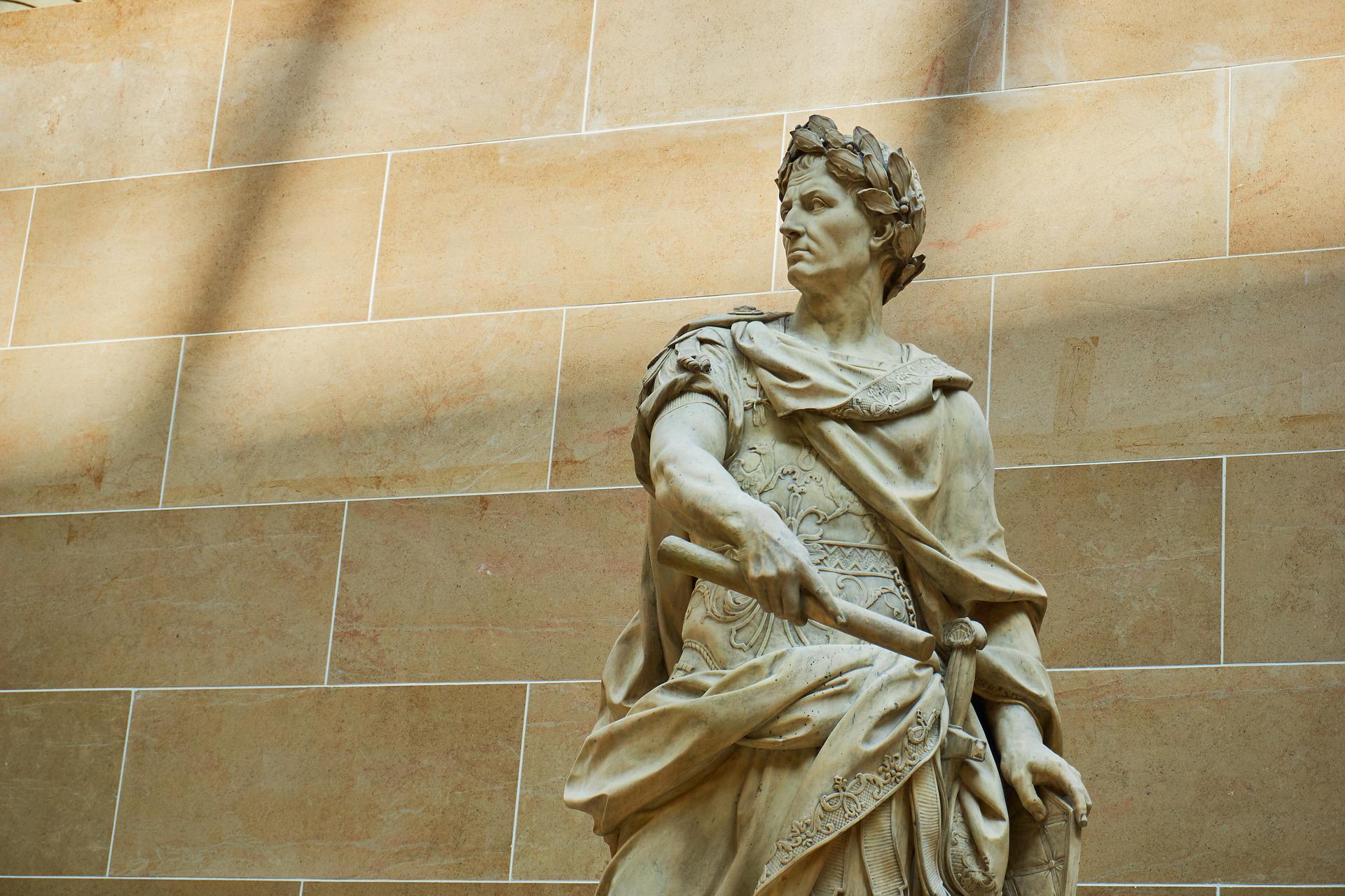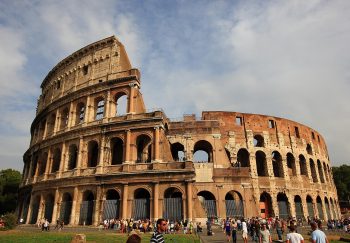Caesar Augustus was the heir to Julius Caesar. But how much do we really know about Caesar Augustus as a leader in Ancient Rome? Here are 8 facts about the Roman Statesman, from political strife to private lives.
1. Julius Caesar adopted him
Julius Caesar was busy ruling an Empire and had one legitimate child, Julia Caesaris. She died in 54 BCE after giving birth. The time was right for the Roman leader to adopt his closest male relative as it was customary within the Roman Empire. Gaius Octavius, his great-nephew proved to be the perfect candidate. Octavius wasn’t aware he had been adopted until Julius’ assassination. He was trained in the trade from a young age and accompanied Julius abroad on his campaigns. Surprised by his (and the Roman government), the eighteen-year-old was named Caesar’s successor after Caesar’s will was read in the Senate. This sparked a bitter struggle for power.
2. His name means “exalted”
Gaius Octavius (or Octavian) was born to a young leader. He assumed the name ‘Augustus Caesar” after Julius Caesar’s passing. Public perception was key in the world of Ancient Roman politics. Augustus knew he had to capitalize on his family name in order to win the trust of the people – even though he was only distantly related to Julius Caesar. (More details to follow). The Latin word “auger” means “to increase”, while the first part of his name, “Augustus”, is a derivative. It also means “serene” or ‘exalted”. His name, when combined, implies that he will ‘addition to the substantial legacy of his predecessor. It may seem daunting, but it is not when you consider…
3. His 200-year-long period of peace for Rome is what is most remembered about him.
Augustus’ reign had one of the most important aspects. He ushered in a period of relative peace for the Roman Empire that lasted two hundred years. This was known as Pax Romana. Although it sounds idyllic, this was not a time of harmony and utopia. It was more like a period of enforced hegemony. Augustus distrusted the provincial governors who managed Rome’s tribute state and preferred to watch them closely himself. He used his enormous power within the Senate to organize extra troops to visit all conquered territories in order to keep them in line. He increased the payments to his soldiers and paid handsomely for their efforts in putting down any rebellions. To prevent history from repeating itself, he created a personal bodyguard called the’ Praetorian Guardian‘. Augustus, unlike most of Rome’s leaders who had a personal entourage to protect them during conflict times, was the first one to create one. His bodyguard was also greatly increased by Augustus, who had nine cohorts of 4,500 soldiers. It’s not surprising that the people wanted to maintain peace.
4. But it was only after a bitter battle – against Antony, Cleopatra
The Roman Empire was thrown into turmoil when Julius Caesar was killed in 44 BC. The Roman Senate was seized by an unsteady triumvirate or three-way leadership. Two politicians emerged eventually as the leaders of power: Mark Antony, and Octavian. Mark Antony, who was a loyal supporter of Julius Caesar in his Senate and served his general abroad as his general, was the favorite to be his successor. Until it was revealed that Caesar had named Octavian in his will. In support of the two, the Senate was split. Soon, Mark Antony joined forces with Cleopatra, the Egyptian Queen. She was a pragmatic and ambitious ruler. Caesarion, Julius Caesar’s sole inheritor, was her mother, which strengthened their claim for power. They met in the decisive battle of the Roman civil war, The Battle of Actium. With a superior navy fleet, Octavian’s armies claimed victory. The lovers then committed suicide in Shakespearean style, making them the subject of many artistic depictions. Octavian, who had ordered Caesarion to die, was made the unrivaled ruler in the Roman Republic.
5. He was a military ruler and patron of the arts.
There is no reason to think you can’t have everything. Augustus is most well-known as a military commander. However, he was also a passionate supporter of the arts. He commissioned many sculptures by Roman artists during his reign. These pieces served an alternate purpose, however. They served a dual purpose. They were decorative and created an image of Emperor Augustus for the public. Many sculptures depicting Caesar Augustus were created during his lifetime. They exaggerated various aspects and were meant to legitimize the Emperor’s position. Many of his statues emphasized his divine right of rule and referenced the fact that he was descended from Romulus. One statue, currently in the Vatican is depicted in armor and a young Cupid sitting at his feet. This highlights his divine connection to the gods.
6. He never claimed the title, Emperor.
The Roman Empire was averse to naming absolute rulers. Instead of naming ‘kings,’ they had Emperors. Ironically, the emperor held much more power than the queen. Augustus’ behavior was a lot like that of Julius Caesar who refused to be called ‘Rex’ (King). Augustus chose to be called Princeps Civitas, the First Citizen of State, instead of accepting absolute titles. He was still widely recognized as the first Roman Emperor. However, Augustus was not shy in making everyone aware of his impact on the State. On his deathbed, he famously stated, “I found Rome to be a city made of bricks and left it to be a city made of marble.”
7. He did however name a month for himself
There are no prizes for guessing the month that honors this Roman leader. Before 8 B.C. August was called Sextilis because it was the sixth month of the Roman calendar. Augustus again took inspiration from Julius Caesar, who had named Quintilis, the fifth month in the Roman Calendar, after himself. He changed Sextilis into August. This was, naturally, a foolproof way for Roman leaders to cement their identity in the minds of the people. But they didn’t realize that this calendar would still be used over 2,000 years later.
Take our VIP Caesar’s Palace Tour to get a great look at this historical legend. It’s not the one in Las Vegas. This tour is full of excitement and thrills. For a full picture of Ancient Rome, we’ll visit the Colosseum as well as the Roman Forum.
8. He was officially made a god
Caesar Augustus, a native of Naples, died from natural causes in 14 A.D. His body was returned from Rome, and nearby businesses were closed for his funeral. His impact on the Roman Empire and the lives of Roman citizens was evident. But did you know that he was also made a god after his death? The Senate, like Julius Caesar before it, issued an official directive after his death that placed him in the pantheon of Roman gods worshipped throughout the Empire.













